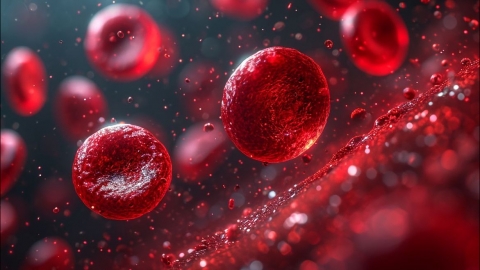What are the causes of acute leukemia?
Generally, acute leukemia may be caused by genetic susceptibility, abnormal immune function, viral infections, long-term exposure to chemicals, and ionizing radiation. If experiencing any discomfort, timely medical consultation is recommended. Detailed explanations are as follows:
1. Genetic Susceptibility
Certain individuals possess specific genetic variations that make them more prone to developing acute leukemia compared to the general population. These individuals face a significantly increased risk of developing the disease when exposed to triggering factors. People with a family history of leukemia should undergo regular health checkups and monitor changes in indicators such as complete blood count. In daily life, they should avoid exposure to various triggering factors as much as possible and maintain a healthy lifestyle to enhance physical resistance.
2. Abnormal Immune Function
When immune function is compromised, the body may be unable to effectively eliminate abnormal cells, potentially leading to leukemia cell proliferation and the development of acute leukemia. Sufficient sleep should be ensured in daily life to avoid excessive fatigue and maintain normal immune system function. A balanced diet rich in protein and vitamins, such as eggs, milk, fresh vegetables, and fruits, should be consumed. Moderate physical exercise, such as brisk walking and swimming, can also help improve immunity.

3. Viral Infections
Certain viral infections may interfere with the normal proliferation and differentiation of hematopoietic cells, increasing the risk of developing acute leukemia—for example, human T-cell lymphotropic virus type I infection. Personal hygiene should be maintained in daily life to avoid contact with viral sources. Timely medical treatment should be sought for viral infections to prevent chronic or unresolved illness. Enhancing immunity can also reduce the likelihood of developing acute leukemia after a viral infection.
4. Long-Term Exposure to Chemicals
Prolonged exposure to chemicals such as benzene and formaldehyde may damage hematopoietic stem cells, leading to genetic mutations and triggering acute leukemia, often accompanied by symptoms such as dizziness and fatigue. Avoid long-term exposure to environments containing harmful chemicals. If occupational exposure is necessary, protective measures such as wearing masks and gloves should be taken. Regular complete blood count tests should be conducted, and any abnormalities should prompt immediate medical attention. If symptoms develop, treatment should be administered under a doctor's guidance, using medications such as dexamethasone sodium phosphate injection, cytarabine for injection, and daunorubicin hydrochloride for injection.
5. Ionizing Radiation
Long-term or high-dose exposure to ionizing radiation, such as X-rays and gamma rays, can damage cellular genetic material, leading to mutations in hematopoietic cells and causing acute leukemia, which may be accompanied by suppressed bone marrow hematopoietic function. Unnecessary exposure to ionizing radiation should be avoided—for example, frequent X-ray examinations without medical necessity. If radiation therapy is required for medical reasons, follow the doctor's instructions strictly and regularly monitor hematopoietic function. After diagnosis, treatment should be administered under medical guidance using medications such as cyclophosphamide for injection, daunorubicin hydrochloride for injection, and methotrexate for injection. Hematopoietic stem cell transplantation may be considered when necessary.
In daily life, it is important to avoid contact with harmful substances and ensure good indoor air circulation. Develop healthy lifestyle habits, quit smoking, and limit alcohol consumption.







